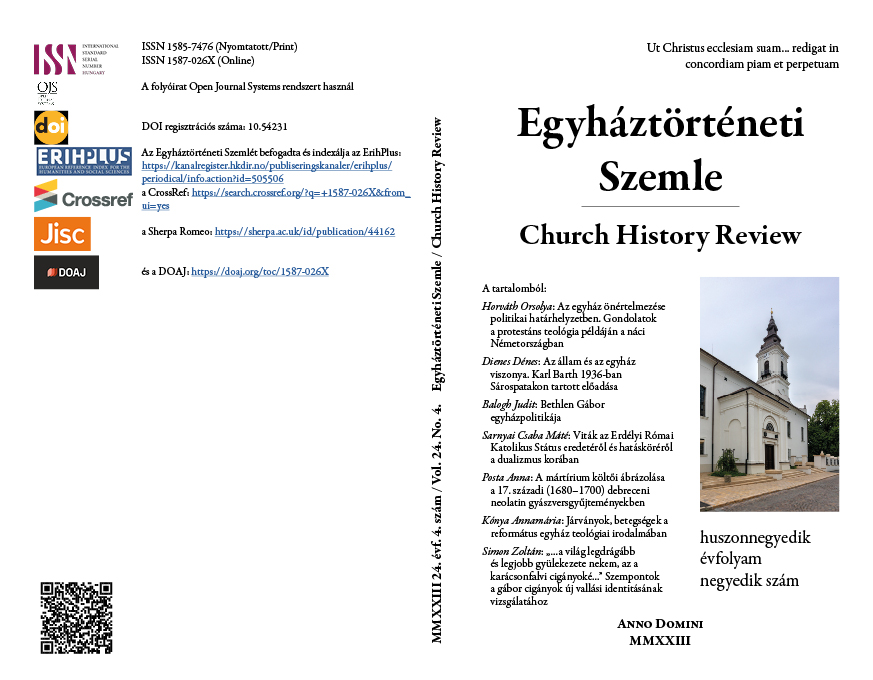The relationship of church and state
Karl Barth’s lecture held in Sárospatak in 1936
DOI:
https://doi.org/10.54231/ETSZEMLE.2023.4.166Keywords:
Karl Barth, state, Church, state and Church, Hungarian Reformed ChurchAbstract
In 1936, Karl Barth (1886–1968) did not visit Hungary in a theological vacuum: his teachings that rejuvenated Reformed theological thought had already been known in Hungary and Transylvania, and its reception had begun already in the early 1930s. He was elected honorary professor of the Reformed Theological Academy of Sáro-spatak, and the distinguished Swiss theologian, obviously alluding to the historical background of the Barmen Declaration, gave his inaugural lecture on the relation-ship between the state and the church. The title of his lecture – People’s Church, Free Church, Confessing Church – already indicated that Barth believed these to be three forms the Church can take in its relation to the state. He also stressed that the Church’s relationship with the state is always determined by the latter’s behavior. The Church responds to the decisive actions of the State, and this response must necessarily come from its essence, that is, its righteousness van only be determined in the context of its mission and its relationship with Christ.
Downloads
Downloads
Published
Conference Proceedings Volume
Section
Categories
License

This work is licensed under a Creative Commons Attribution 4.0 International License.
The author(s) reserve the copyright of their work.
The Church History Review does not restrict the rights of authors to place their manuscripts or manuscript versions on preprint servers or other hosting. This applies generally to the following formats.
- Submitted version
- Accepted version (manuscript accepted by the author)
- Published version (Version of Record)









